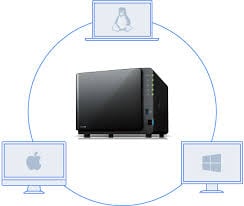this post was submitted on 28 Nov 2023
94 points (96.1% liked)
Linux
48039 readers
779 users here now
From Wikipedia, the free encyclopedia
Linux is a family of open source Unix-like operating systems based on the Linux kernel, an operating system kernel first released on September 17, 1991 by Linus Torvalds. Linux is typically packaged in a Linux distribution (or distro for short).
Distributions include the Linux kernel and supporting system software and libraries, many of which are provided by the GNU Project. Many Linux distributions use the word "Linux" in their name, but the Free Software Foundation uses the name GNU/Linux to emphasize the importance of GNU software, causing some controversy.
Rules
- Posts must be relevant to operating systems running the Linux kernel. GNU/Linux or otherwise.
- No misinformation
- No NSFW content
- No hate speech, bigotry, etc
Related Communities
Community icon by Alpár-Etele Méder, licensed under CC BY 3.0
founded 5 years ago
MODERATORS
you are viewing a single comment's thread
view the rest of the comments
view the rest of the comments

I use systemd mount files instead of fstab, that way I can specify a network dependency in the off chance there's no network connection. Plus I can have other services like jellyfin depend on that mount file so it starts after the share is available.
I need to start doing this
https://www.golinuxcloud.com/mount-partition-using-systemd/#Steps_to_mount_partition_using_systemd_unit_file
in fstab, there's a nofail option that I started using when mounting NFS and other disks that may be missing and I don't want to kill my bootup
Thank you!
Dipping my toes into this as well. Would you care to share the contents of your .mount unit file?
If I understand it correctly systemd generates unit files at boot using fstab 🤔. Probably not possible to specify the network dependency in fstab.
The file name has to match the folder upon which the share is mounted with hypens instead of forward slashes